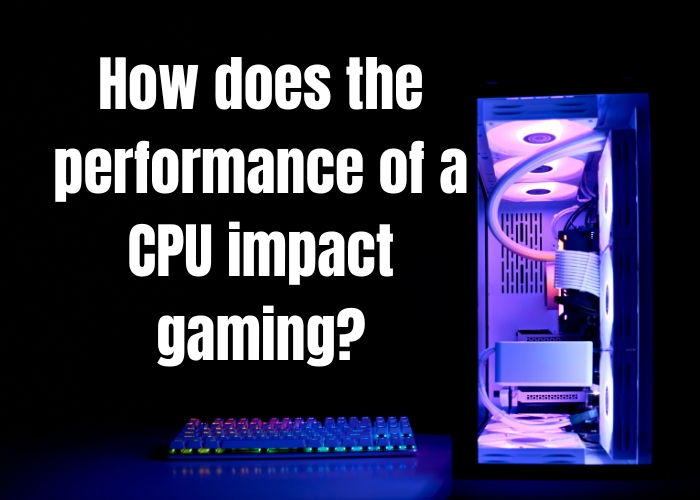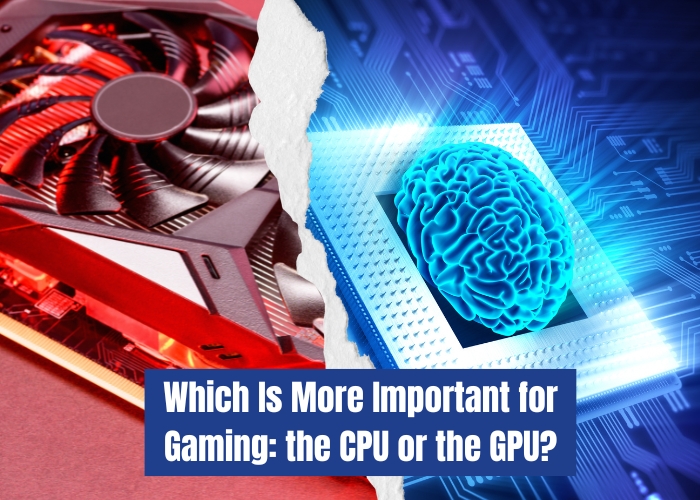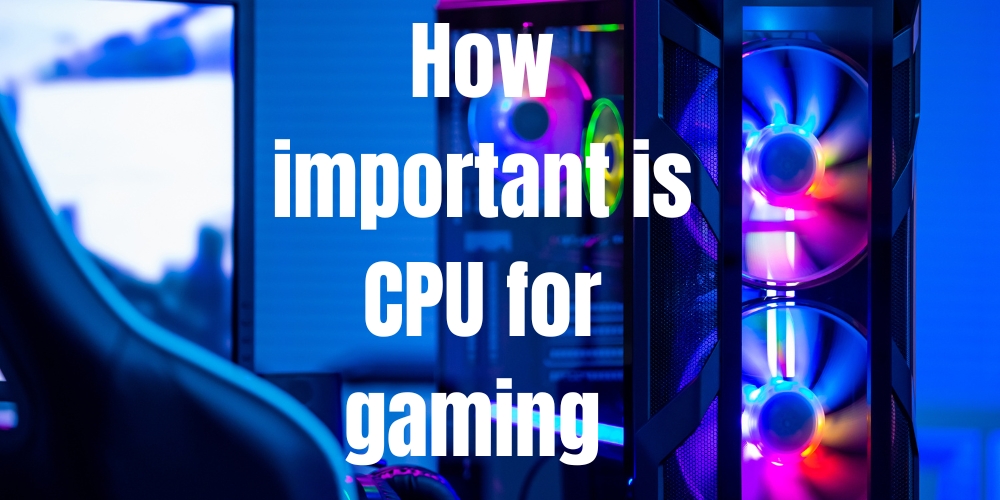If you’re a gamer, you’ve undoubtedly pondered how much your CPU influences your games’ performance. The CPU is your computer’s brain—it processes all of the data and instructions needed to run your operating system and your games, to put it mildly. The top CPUs available will improve the performance and smoothness of your entire machine. But does it matter that much? Perhaps you’re also considering what CPU to acquire to play games at your optimal level. Let’s talk about how important the CPU is for gaming.
CPU: What is it?
How important is the CPU for gaming? The central processing unit, or CPU, is a computer’s brain that carries out computations and commands. It is a necessary part of every computer, including gaming. A strong CPU is required for gaming to manage the many computations and procedures that contemporary games demand. A powerful CPU will guarantee lag-free gameplay and seamless immersion for gamers in the virtual environment.
Multitasking is possible with a CPU with several cores and high clock speeds. For example, you can film gameplay videos or play the game while streaming it live. This is particularly crucial for players who produce content or compete in esports.
What is the function of a CPU?
The part of your computer that runs the programs and games installed on the same operating system and the instructions and computations that make up your operating system is called a CPU, or central processing unit. Independent processing units called threads and cores, each capable of managing several tasks concurrently, make up a CPU. Gigahertz (GHz), which represents the number of cycles per second the CPU can process, is the unit of measurement used to describe CPU speed. A higher frequency (GHz) CPU will operate at a higher temperature and require more power.
How does the performance of a CPU impact gaming?

CPUs have two critical effects on gaming performance: they supply the processing power needed to run games smoothly and facilitate fast and effective communication between the CPU and the graphics card (GPU). When playing games, the finest gaming CPUs manage a variety of duties like input/output control, sound effects, artificial intelligence, and physics computations. Certain games require more processing power and occasionally more cores to function correctly than others. These games are referred to as CPU-intensive games. For instance, action games like Doom Eternal, which mostly rely on GPU power, tend to be less CPU-demanding than massive strategy games like Crusader Kings III.
Additionally, a CPU must transmit data and instructions to the GPU to render the images on your screen. While the GPU can function without the CPU, it still needs the CPU to supply it with data. The performance of the GPU may be hampered by a bottleneck created by an overworked or slow CPU. Low frame rates and jerky game performance may come from this. Generally speaking, you want to ensure that your graphics card overpowers neither the CPU nor the GPU.
How to pick a suitable CPU for gaming
The budget, your gaming style, the resolution and refresh rate of your display, and the other parts of your PC all play a role in selecting the best CPU for gaming. However, we can offer simple guidelines to help you determine which processor—Intel vs. AMD—is better for you and why.
As we have already discussed, certain games require more processing power than others. Consider acquiring a CPU with additional cores and threads if you primarily play games that significantly rely on the CPU, like strategy or simulation games. As previously stated, threads are virtual units that enable each core to manage numerous activities concurrently, whereas cores are the actual CPU units that carry out calculations.
Increased multitasking capacity and enhanced performance in intricate situations correlate with larger core and thread counts. Because it utilises performance and efficiency cores and high-core count processors, Intel’s CPUs in 2023 are a good choice for players who prefer strategy or simulation games. Although rival AMD CPUs typically include fewer cores than their Intel counterparts, they outperform Intel processors in cache size and integrated graphics. If you are okay with not using the CPU’s built-in graphics, an AMD processor might save you a few hundred dollars. AMD CPUs are also an excellent option for cores at a specific price. The best AMD gaming CPUs are competitive with the best Intel CPUs, but you can choose from various offers from both companies based on your budget and preferred gaming style.
Which Is More Important for Gaming: the CPU or the GPU?

While the CPU and GPU are both necessary for gaming, the GPU is typically more important for optimal gaming performance. The GPU is in charge of rendering, while the CPU manages non-graphics duties, including AI computations, physics, and game logic.
While a slower GPU can result in choppy gameplay and poorer visual quality, a high-performance GPU can handle complex graphics and give smooth gaming with high frame rates.
However, a strong CPU is also essential since it can speed up loading times and guarantee that the AI and logic of the game are processed quickly and effectively. For best gaming performance, a well-balanced system with a strong CPU and GPU is required.
How Many Cores Are Needed for Gaming?
How important it is depends on the game. Different games may demand various cores depending on the particular game and the system’s specifications. While certain newer games may require more cores to perform at their best. Most games will run smoothly on a quad-core processor.
The processor’s cache size and clock speed can also impact gaming performance. It’s crucial to consider additional system elements. Such as the graphics card, memory, and storage, to make them well-balanced and provide an enjoyable gaming experience.
This implies that although the quantity of cores is crucial for gaming performance. A smooth and pleasurable gaming experience is influenced by many factors.
In summary
In conclusion, how important is the CPU for gaming? The number of cores needed for gaming can change based on the particular game and the system’s specifications. While some games may need more cores to perform at their best. Most recent games can be played smoothly on a quad-core processor. Numerous alternatives on the market might offer exceptional performance when it comes to the best CPU for gaming. The AMD Ryzen 9 5900X, Intel Core i5-11600K, AMD Ryzen 7 5800X, Intel Core i7-11700K. And Intel Core i9-11900K are a few of the most well-liked and strongly suggested CPUs for gaming. In the end, several variables will determine the best CPU for gaming.Such as your spending limit, the games you play, and the rest of your system setup.

